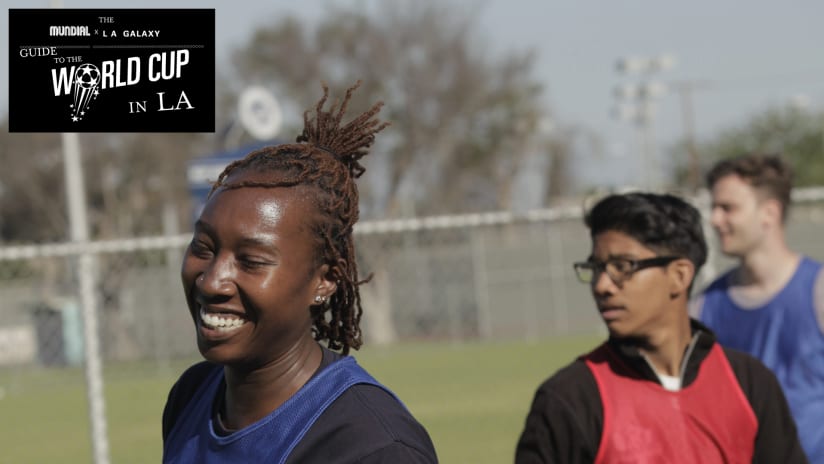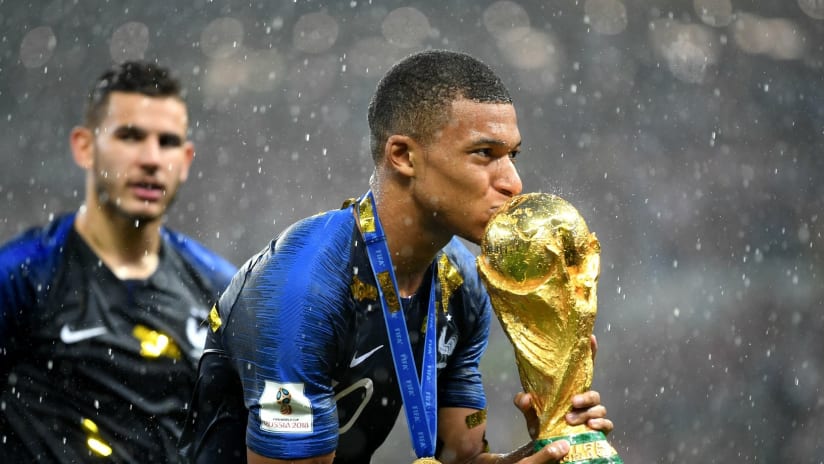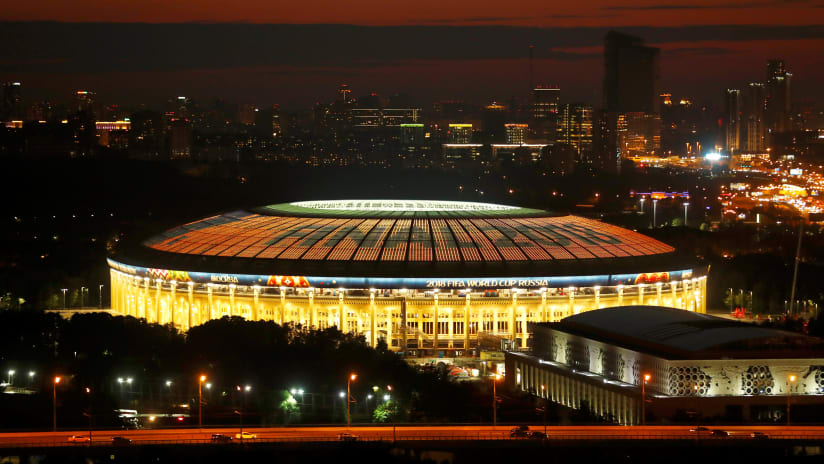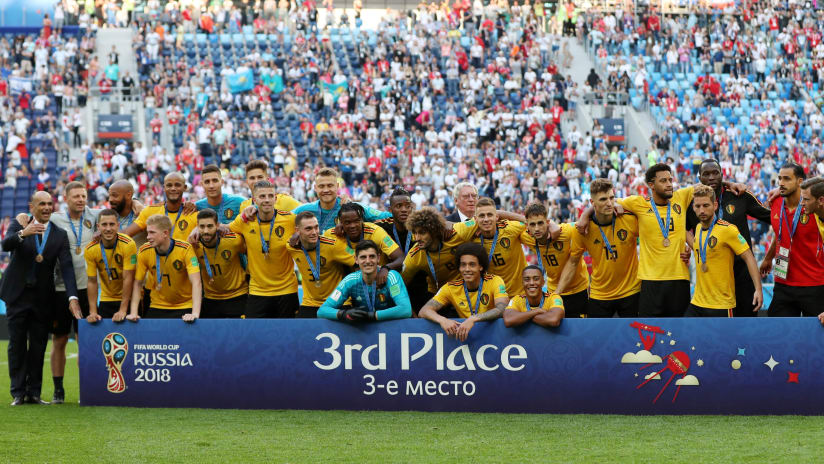Mikayla Campbell of Street Soccer USA talks about dedication to soccer for social change in Watts and beyond…
I’m from the San Fernando Valley and having played soccer since the age of about five, I’ve developed a unique understanding of soccer within the Los Angeles landscape.
I feel like I played every sport growing up but it was soccer that stuck. I don’t think I ever asked to be a goalkeeper, and I guess I never complained, but I got good at it, so I stayed there. I played in high school at Bishop Alemany in Mission Hills, and then at Loyola Marymount University. I played for two years there, then studied abroad, going to Spain, Cuba, and also participating in a domestic exchange at Spelman College in Atlanta. During my time in Cuba, I enjoyed the spontaneity of participating in pickup games with the local youth. Maybe that sparked something in me. Looking back, that seems to have foreshadowed what my relationship to soccer would be in the next year.

“Here in America, the upset at the men’s team not qualifying for the World Cup is symbolic of how we treat soccer—especially youth soccer. Sometimes, we over-complicate the sport. We talk about safe spaces to play, best practices in coaching, and forget the desire of youth to play and have fun, to simply learn by playing. We don’t see many kids walking down the street kicking a ball here, as often as we might see it abroad. That attitude is picking up, though, here in LA, but we still have a long way to go.
“When I first started at Street Soccer USA, I was under the impression that Watts was a largely African-American community. Now I see that 98% of our program is Latino youth and perhaps a couple of black youth. In a sense, this was reflective of my experience playing soccer growing up as my teams were never populated with more than one or two black youth, and so in my experience, I faced a lot of scrutiny being a black girl playing soccer.
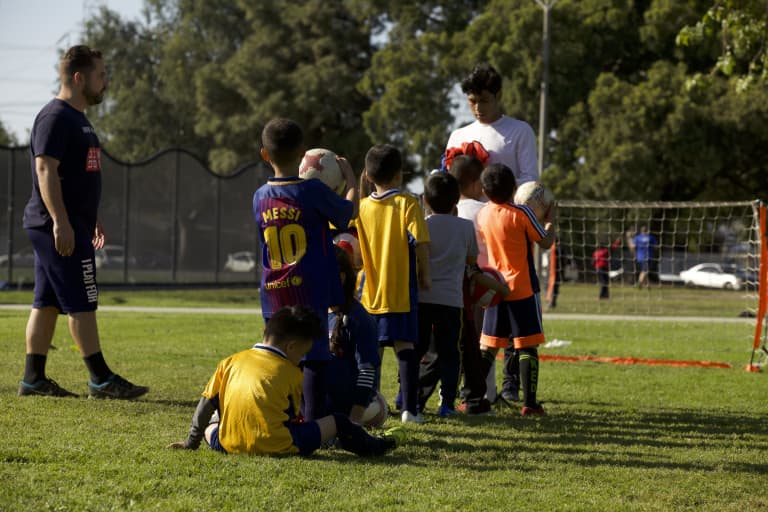
“What I’ve seen is a deficit of black youth in soccer, and although I’m sure there are a variety of reasons as to why, maybe it’s because we’re scrutinized or discouraged from playing. I think it’s very interesting because elsewhere soccer is huge in other black countries across the globe. A large part of our work requires us to be culturally sensitive, understanding that soccer is a highly influential component of Latino culture.
Soccer has so much potential to grow youth on and off the field. I attribute so much of the woman that I am today and so much of my success to what I’ve learned on the field. Now I can navigate so many diverse spaces because of the conversations that I’ve had, and the leadership skills that I’ve grown into and acquired. Leadership has never been an issue for me, and maybe that’s because I was a goalkeeper, often a very loud, communicative position.
Perhaps it doesn’t apply to every person that plays soccer, but I believe I’ve become more confident, and that’s really what the work we do here seeks to achieve. The Los Angeles Unified School District reports that 17,000 of its students are homeless at any given time, and so our no-cost community soccer programs help to promote skills on and off the field, keeping kids engaged and supported throughout middle school, high school, and eventually college. We want to create self-determining problem-solvers. We want help kids develop self-efficacy and have the tools they need to succeed despite their neighborhoods and so many external influences placing limitations on their potential.
At the core of our operation is the concept of relationships. A summation of what I’ve learned or how I’ve developed as an individual through soccer has been dealing with adversity, working with a team, and maintaining positive relationships with members of said team. I now carry that into my work life—the ability to overcome challenges and deal with adversity. We have the kids figure out how to solve their own challenges through their own effective questioning, rather than us guiding them to the answers. That’s what football is all about, really: this isn’t a game with timeouts. You have to problem solve in real time, with all the speed bumps that come with that, the stresses and strains, with tired bodies and minds.
LA Galaxy Foundation to Co-Host First Street Soccer USA Cup – Los Angeles
This program was a little challenging for me at first, as I wanted to hit the ground running. I wanted to have so much impact straight away and do all these things. The kids were probably a little bit like: “Who’s this lady who wants us to do all these new games?”
I needed to step back and have a relationship with everybody. But now, the response from the kids is positive. I’ve started to form relationships with the parents as well, and they’re beginning to catch on to the work we’ve done. We did a USC clinic in April which was a great exposure outing, and an opportunity for the kids to see what is available to them outside of Watts. That was also a huge opportunity for the parents to see all we’re doing and how we do what we do. There’s so much more behind it. It’s not just soccer.

